Women volunteers fight COVID-19 vaccine hesitancy in South Sudan
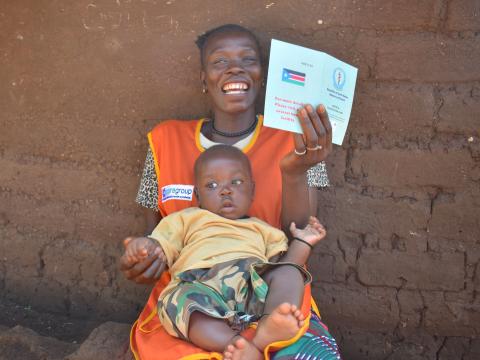
“The vaccine is safe. It will protect my children and I from COVID-19”, says Joy Nimaya, a 22-year old mother of three and a Boma health promoter for World Vision’s CORE Group Polio Project funded by United States Agency for International Development (USAID).
The breastfeeding mother lives in Hai Gabat in Maridi County, one of the ten counties of South Sudan’s Western Equatoria State.
The promoters are community volunteers who acts as a bridge between the community where they live and the project field staff. They help address the issues resulting on COVD-19 vaccine hesitancy through awareness and education.
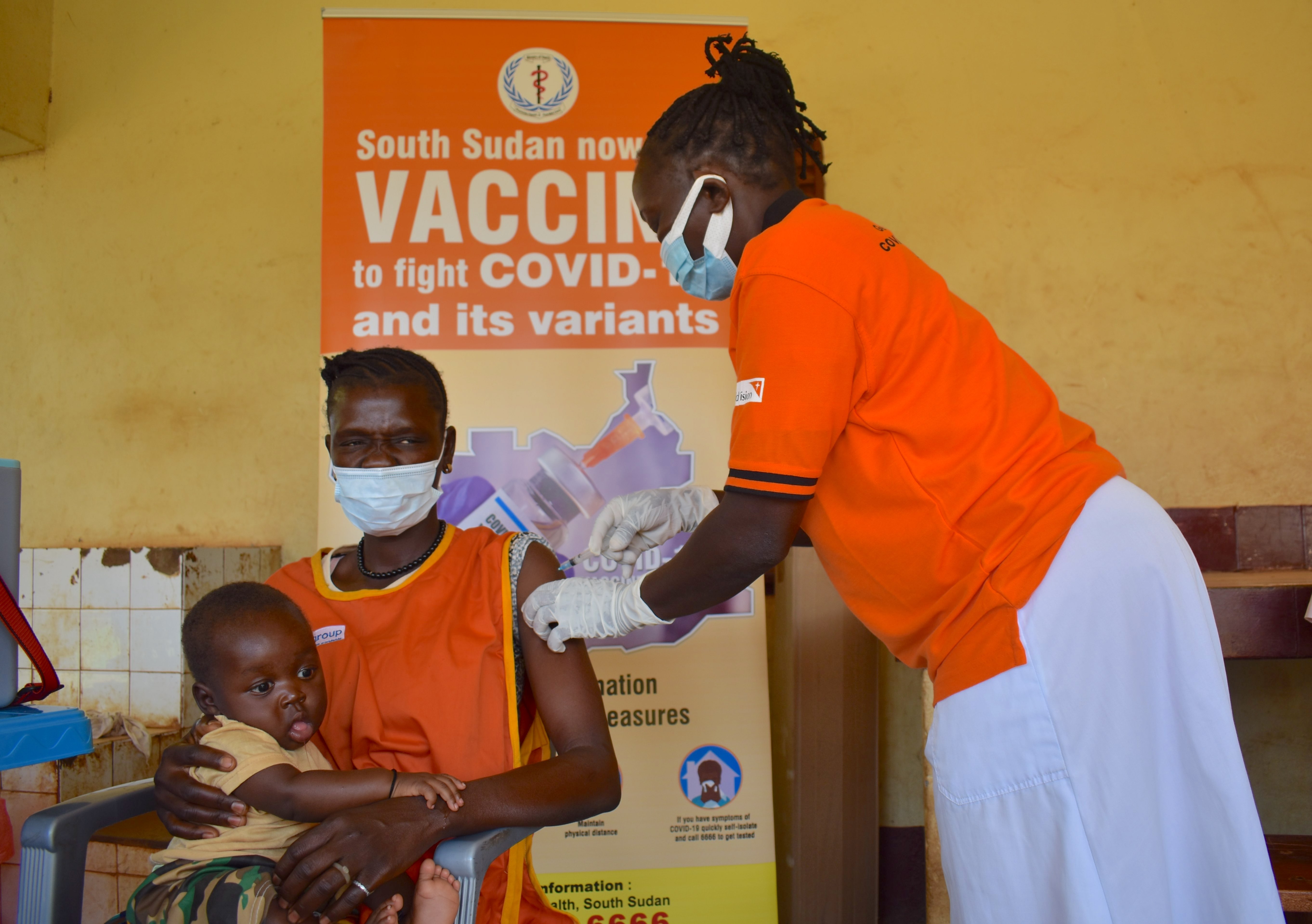
Joy has been a promoter for two years, coming from a small sparsely populated village where most of the people, and particularly women, are unable to read and write. The National Bureau of Statistics estimates that the total population of Maridi County is 119,189 people in 2021.
Part of her daily routine is to conduct house-to-house visits discussing the importance of vaccination for women and their families. She explains, “We discuss about the coronavirus, the different types of the vaccine, number of doses and the importance of getting vaccinated.”
Last August 2021, many people reportedly died in Maridi County creating fear among the people. “A lot of myths and misconceptions exist about the virus and the vaccine. They allege that the vaccine can cause infertility particularly in women, or can turn people into zombies”, she shares.
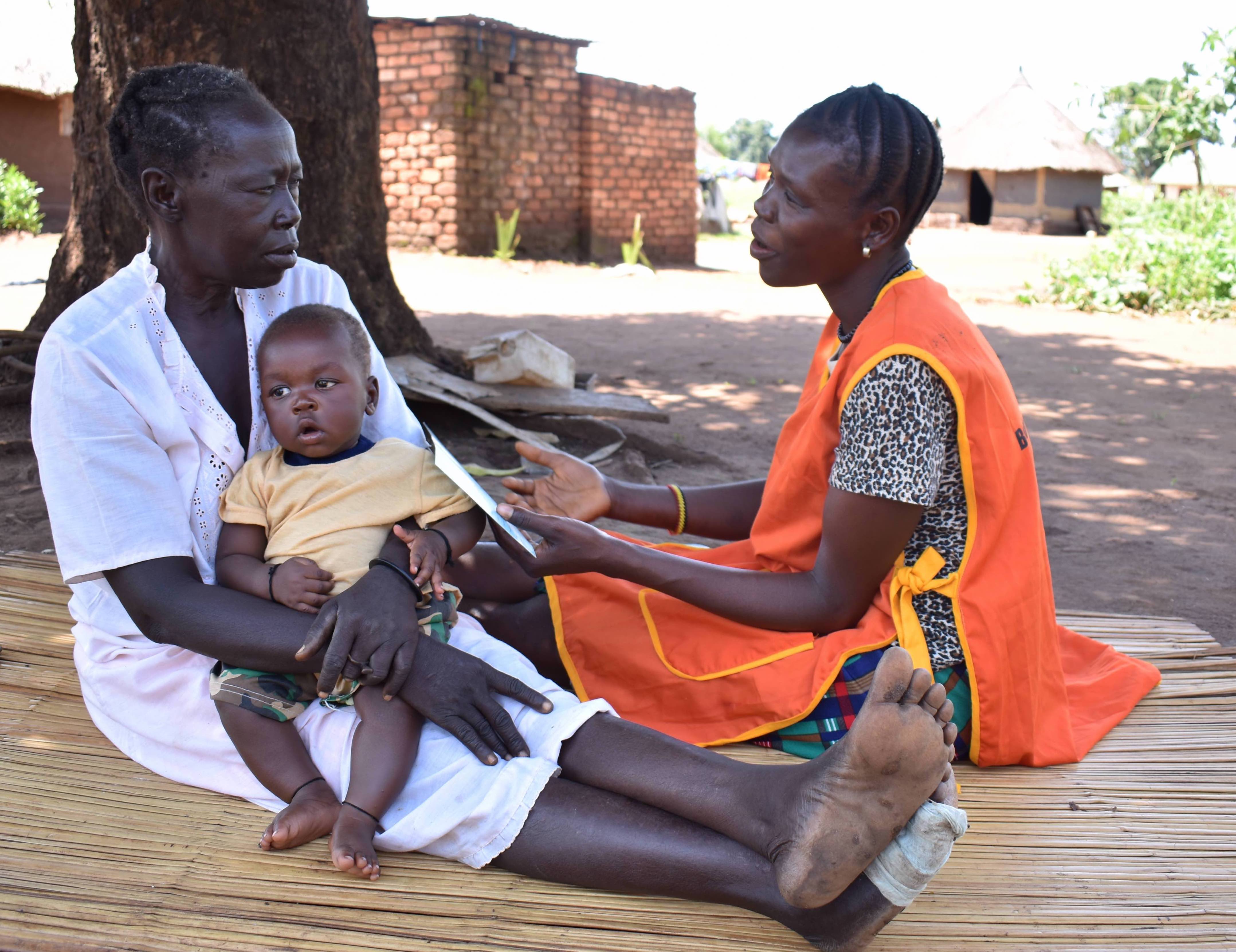
She adds, “But as the number of deaths increased, people became aware that the pandemic is a real threat, and that the vaccine could save them from the severe effect of the disease and from death.”
Joy recalled that when the AstraZeneca vaccine was introduced in South Sudan, the pregnant and lactating women were not targeted for vaccination. The most common question Joy addressed frequently was why pregnant and breastfeeding mothers were excluded.
A lot of myths and misconceptions exist about the virus and the vaccine. They allege that the vaccine can cause infertility particularly in women, or can turn people into zombies.
She says, “Often, I was asked if I am vaccinated during my daily sessions. At that time, breastfeeding mothers were not included.” But when this directive changed, Joy became the first to be vaccinated with the Johnson and Johnson vaccine.
She was more than happy to show her vaccination card to other members of her community. “I took vaccine as soon as my supervisors told me that the vaccine is available for everyone above 18 years old, and is safe even for breastfeeding and pregnant mothers”, adds Joy.
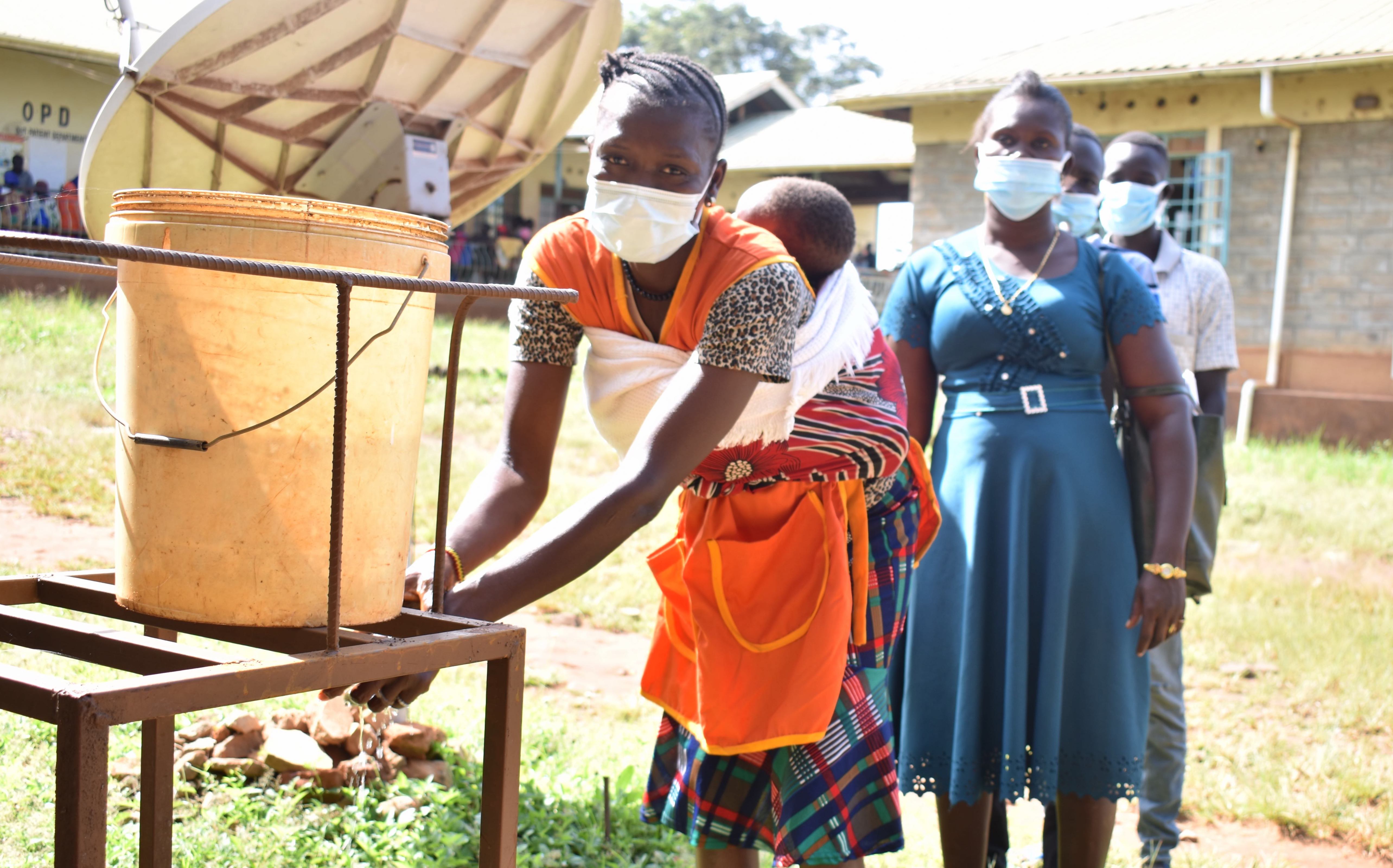
The Ministry of Health reported that 156,939 (1.14% of the population) were fully vaccinated in South Sudan with either AstraZeneca or Johnson & Johnson. The proportion of females vaccinated with Johnson & Johnson was 46.4% compared to 25.8% females vaccinated with AstraZeneca in the first and second phases of the vaccine introduction.
The low uptake of the COVID-19 vaccines among females in the first and second phases of the vaccination in South Sudan could be attributed to myths and misconceptions caused by inadequate information particularly among females.
The inadequate supply of vaccines in phases one and two had limited the vaccination to only 35 counties and 101 vaccination sites targeting mainly high-risk groups. Women who reside in the rural areas were not adequately reached with information on vaccine availability.
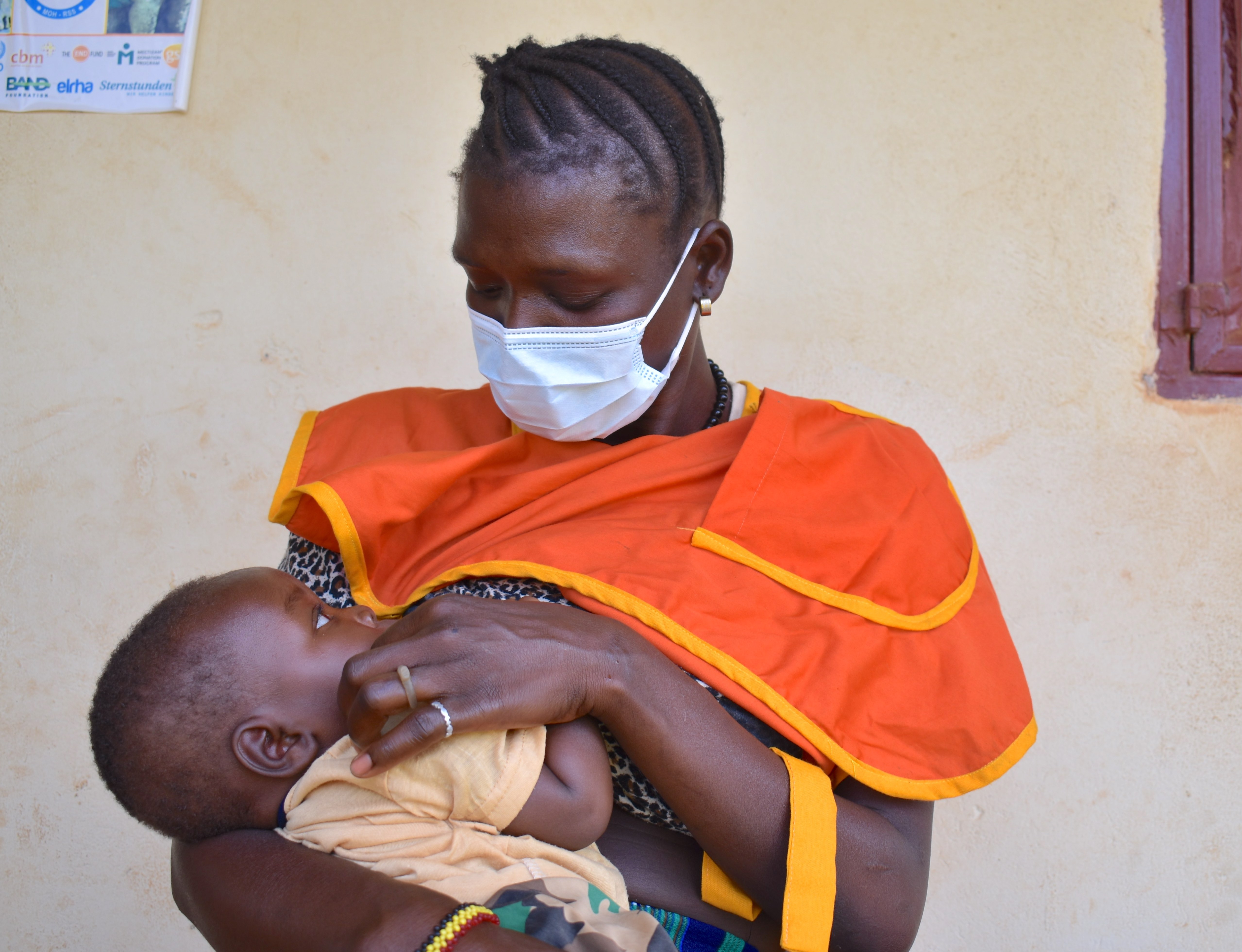
Moreover, the busy schedules of the women in markets and farms make it difficult for the majority of them to travel far distances to get vaccinated.
The Deputy Project Director Dr. Rumbe Samuel says, “The limited information on vaccine safety to counter the myths on the effects of the vaccine on women, and the misconceptions during the initial phases contributed to the disproportionately low uptake among women.”
The introduction of the J & J vaccine led to availability in all 80 counties in South Sudan making it possible to conduct a more robust outreach vaccination campaign led by World Vision in partnership with the Ministry of Health and various partners. This ensured an increased participation, awareness and uptake of women.
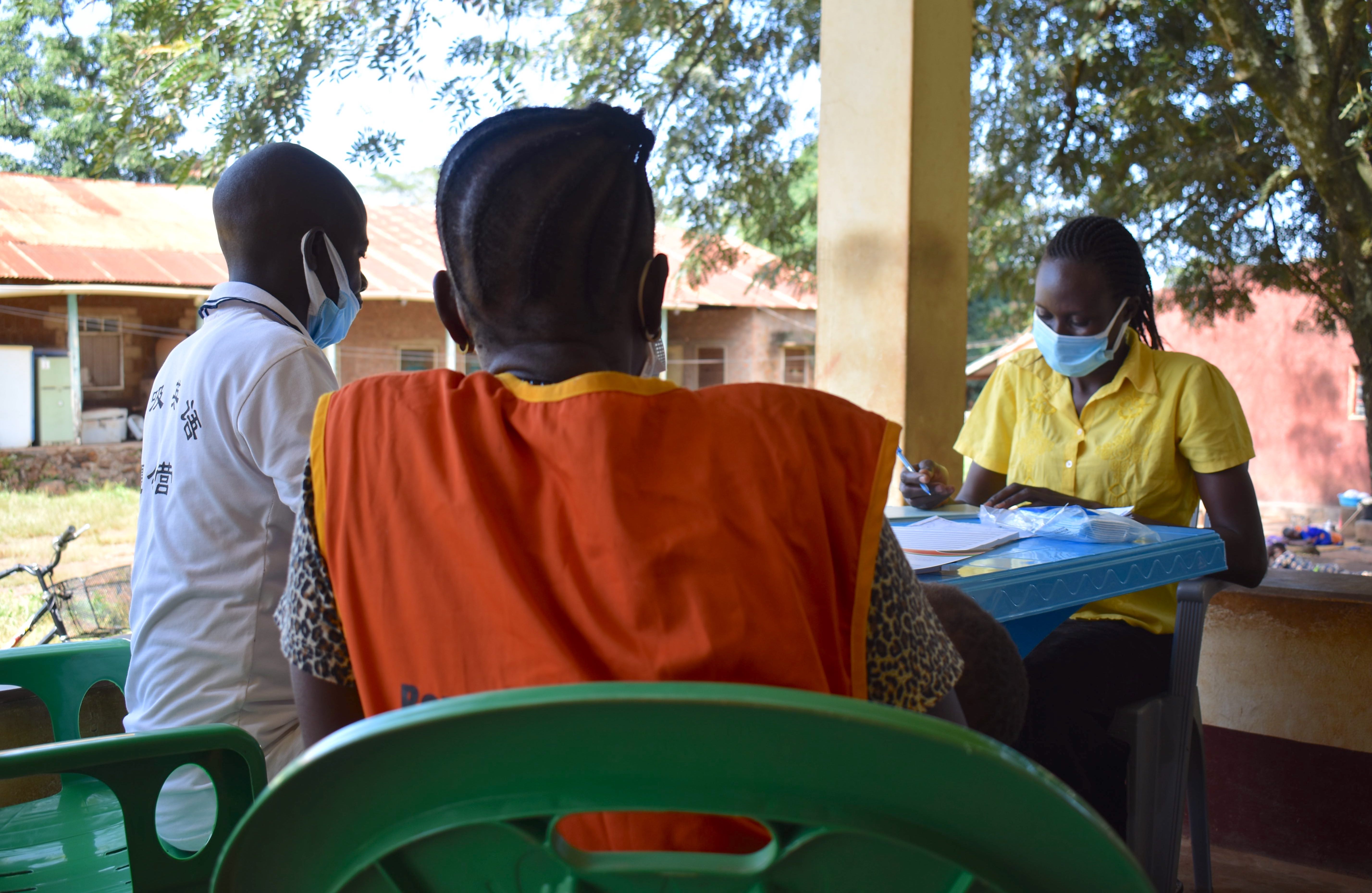
Story and photos by Jemima Tumalu, Communications Officer